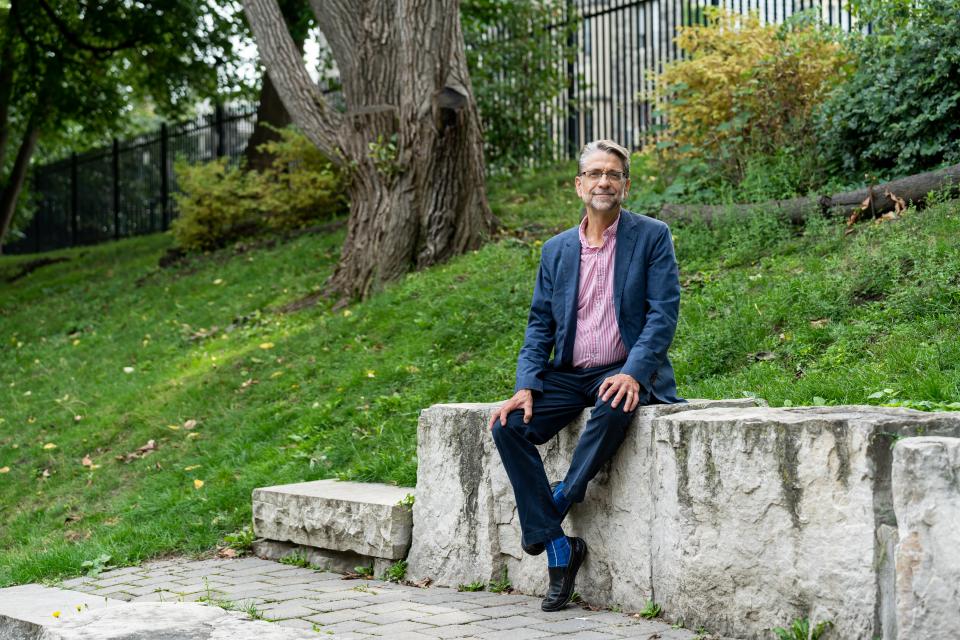The following comments were transcribed from opening remarks by Professor Ephraim Radner delivered at Morning Prayer in the Wycliffe College Founder’s Chapel, on Thursday, December 16, 2022.
*
I would imagine that some of us are feeling a bit discouraged right now in the face of some of the developments around the virus—the Omicron … and maybe in particular in the face of UofT’s announcement yesterday that in-person classes will be delayed by three weeks in January. (So the classes will begin online and remotely for those three weeks.) And all the other developments that are around this … ‘Are they going to do travel restrictions? Visiting family? Getting back to Canada? Attendance at church? Schooling for our kids? What’s going to happen? Is it going to go back to last year?’
That kind of discouragement, I think, is quite understandable. As I think you probably realize, Wycliffe College—these are challenges for our leadership: Stephen, our Principal, Rob Henderson our Executive [Director], our staff and faculty. A lot of scrambling is going to get done, logistically, protocol wise, financially, for all of us. And I would sense there’s some depletion that is being experienced. A lot of anxiety. And maybe not a lot of energy left in the tank. So I wanted to say two things to this:
Firstly, from on a very practical level—I think there a lot of good reasons why we should expect this to be a temporary adjustment and not going back to last year. We don’t have to go through those but they’re not great reasons, they are reasonable reasons. And we can be reasonable about all this. So that’s one thing.
But more importantly, and this goes to who we are as Christians at Wycliffe College—we’re not the same people we were two years ago. At least that’s what I believe. We’ve learned some very important things. We’ve learned how to hope more fully. That is to say, our hope now can encompass—because we’ve seen God do good in our midst in the face of tremendous challenges. We’ve learned to hope more fully about God’s work—not just in my life as an individual, but corporately for our community, for meeting difficult things in ways we hadn’t expected. It’s mysterious, but it’s concrete.
I think we’ve also learned to pray more deeply. Not the kind of general prayers and haphazard, personal, individualistic prayers that we’re all accustomed to, but I think we’ve learned to pray in a more focused, corporate manner about our communities, about the world, about one another, about this College, and about the fact that in this hope, which runs as a current in God’s world, our needs find their place and not the other way around. And that kind of prayer makes a difference. That’s a matter of faith. I think we’ve learned to pray more faithfully.
And finally, I also think we’ve learned to share Divine love more generously with one another. Let go of some of the things that have held us back individually. We can care for one another in ways that go beyond, perhaps, what it looked like two years ago. Obviously, we’re on a journey. But I see a difference. We have learned something.
And one of the things that we’ve learned, furthermore, is that all of these learnings are gifts of God. They’re not our conjuring. They’re the grace of God, shared with us in Christ Jesus, His Son, through His Holy Spirit. And thus, we have a confidence, perhaps, that we didn’t have two years ago, about what it means to be the people of God and to have God as our God.
And dare we think that maybe God has been preparing us for a hope, and a faith, and a love that is more mature? Dare we hope that?
And dare we hope also, that in that growth and maturity, we can share this grace and gifts of God with people who don’t recognize God’s grace around us. Not just more confidently, but more joyfully, and more persuasively. I think that is the case. Thus this is not necessarily a time for discouragement, but actually a time for a new energy, and a new grace, and a new life, however temporary, which I think this will be—nonetheless, truly so, in a bigger picture.
So, we turn to our prayers now … embraced by the reality of the God who comes to us in His Son, Jesus Christ with mercy and judgement but with a light that the darkness cannot overcome, and then overcomes, itself, all that is night.
***





